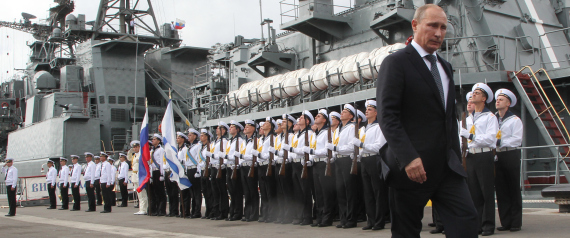Just as the revolution surprised the world with its rebirth during the truce, so too has the Russian withdrawal surprised the international community. Russia, which had deployed more than 4,000 soldiers, 50 warplanes, and dozens of rocket launchers, claims that its military objectives have been achieved in Syria. Russia withdrew at the height of its doubling down on the fight against “terrorism.” As such, the withdrawal has caused a lot of speculation amongst Syrians.
Not a Complete Withdrawal
March 14, 2016 has been called by some the “Evacuation Day,” drawing back on the withdrawal of the French colonial forces on April 17, 1946. The irony is that while Syrians were unanimous in their joy at the French withdrawal, many are divided about the Russian presence, with some viewing Putin as Syria’s savior and others as a war criminal.
The results of this withdrawal, according to different analysts, have been varied. A number of the analysts believe the Russians withdrew due to worsening tensions between the Russians and the regime. Writer Mohamad Dibo says that “the Russian decision does not end the Russian role in Syria, and does not signify the withdrawal of Russian troops in Humaymim and Tartus. While this decision does not seem to make any strategic sense, it may be a tactical way to mount pressure on the regime to acquiesce to the international settlement. Syria, however, still seems to be under Russian custody, and one should not be too optimistic about the withdrawal." While commentator Hamza Rastanawi feels that, "it will not provide a radical solution to the crisis in Syria or a fundamental shift in the regime’s attitude or the acceptance of a political transition that leads to free presidential elections without Assad. Similarly, if Hezbollah and the Iranian Shiite proxy militias withdrew from Syria, the regime would not change the regime’s position; the regime severely lacks flexibility and will face his fate alone to the finish. This regime will either win by force or be crushed by force, similar to the ouster of Saddam Hussein, Gaddafi, and Ali Abdullah Saleh.”

Russian Defeat
Some Syrians have read this withdrawal as a Russian capitulation, due to some terms in the truce or the FSA resistance, who “have defeated the Russians, and before them the Iranians, Hezbollah, and other sectarian militias” as expressed by Ghassan Abboud, who believes the motives of the withdrawal to not be military but economic, as the ruble has improved greatly against the dollar a day following the withdrawal. “The withdrawal has several reasons, the first of which is economic due to the Western sanctions that have strangled Russia. The financial costs of the military involvement have become a heavy burden and Russia is desperate to improve its relations with the Gulf, especially Saudi Arabia to stop the deterioration of oil prices,” writes Mahmoud Hamza. It is this defeat, according to Orwa Rayyan, that has lead to the withdrawal, and the return of the peaceful demonstrations after the start of the truce.
Coalition Forces and the Fate of the Presidency
On the other hand, many linked the Russian withdrawal and the regime’s recent statements, including that of his foreign minister’s that the removal of Assad is a red line. “Maybe what has happened is that the Russians have offered Assad 18 months to stay, and he refused, not wishing to discuss the item and as a result, they withdraw part of their troops in Tartus and Humaymim. Perhaps a deal will be made in the UNSC that will not be vetoed by Russia or China this time,” Nasser Alayed writes. Russia, according to what some say, has told Assad his time is up and has signed a deal with the Coalition forces, which he has not agreed to. “Russian withdrawal means there is to be an Islamic Coalition intervention in Syria, with the establishment of a safe zone near the Syrian border,” according to Hisham Munawer.




